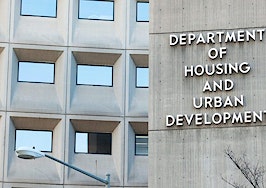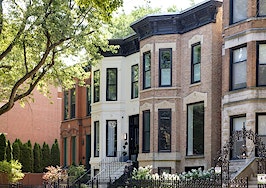Fifty years after the enactment of the Fair Housing Act, segregation persists nationwide, with Milwaukee among the most disparate U.S. cities, according to a study by Apartment List.
Released last week, the study determined a so-called “segregation index” for 50 of the nation’s largest cities using U.S. Census Bureau data and found that the longstanding effects of exclusionary zoning, sub-prime mortgage lending practices and discriminatory language in property records had combined to create lingering disparities well into the 21st century for minority residents, 39.4 percent of whom live in neighborhoods that are less than 25 percent white.
“These policies and other related factors led to higher concentrations of poverty in minority neighborhoods, and the persistence of significant wealth gaps has served to reinforce patterns of residential segregation,” wrote Apartment List Housing Economist Chris Salviati, an author of the study.
The index, Salviati added, “can be interpreted as the percentage of the minority group that would need to move to a different neighborhood in order for the distribution of minorities in each neighborhood to match that of the metro as a whole.” It’s presented as a percentage of one: as a hypothetical example, 0.9 would mean that 90 percent of minorities in a neighborhood would need to move in order to match the entire surrounding city’s proportion of minorities. 0.2 would mean only 20 percent would need to move to achieve the same makeup as the surrounding city.
Last month marked the anniversary of the establishment of the Fair Housing Act, a federal measure that made it illegal to discriminate against renters or buyers based on race, color, religion, sex, disability, familial status or national origin.

The national segregation index for blacks, Hispanics and Asians are 0.59 for blacks and 0.47 for both Hispanics and Asians, meaning that 59 percent of blacks and 47 percent of Hispanics and Asians would need to redistribute in order to create more integrated neighborhoods.
On a local level, Milwaukee had the highest segregation index (0.61) with the majority of minority (Hispanics, Asians, blacks) residents living near the city’s urban center and the majority of white residents living on the outskirts. Thirty-two percent of the city’s population are minorities, and 55.8 percent of them live in neighborhoods that are less than 25 percent white. Out of the three minority groups studied, blacks were the most segregated — 74.6 percent of them live in a minority-majority area.
Following not too far behind Milwaukee were New York City, Detroit and Buffalo, all of which had a segregation index of 0.58.
On the other hand, Seattle had one of the lowest segregation indexes (0.32) with minority residents being more evenly spread throughout the city. Thirty-four percent of Seattle’s population are minorities, and 4.9 percent of them live in tracts that are less than 25 percent white.

Beyond creating segregated neighborhoods, these policies have hindered minority groups from becoming homeowners at the same rate as their white counterparts, notes the study. Nationally, 72.4 percent of white households own homes — a homeownership rate 15.1 percentage points higher than Asian households, 24 percentage points higher than Hispanic households and 30.2 percentage points higher than black households.
Although homeownership rates by race vary from metro to metro, Apartment List says the trend remains the same: “higher levels of residential segregation are correlated with more severe homeownership rate gaps.”
Salviati recommended expanding low-income rental assistance programs and allowing those recipients to use their benefits in “high-opportunity” neighborhoods to create more integrated cities. He also suggested building more affordable, mixed-income housing complexes, similar to what New Orleans did after Hurricane Katrina.
These things, he said, “could go a long way toward addressing the persistent problem of residential segregation.”












